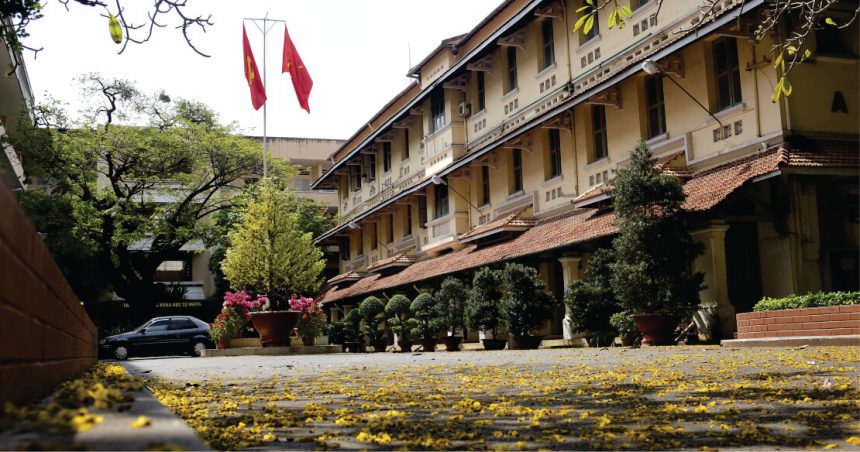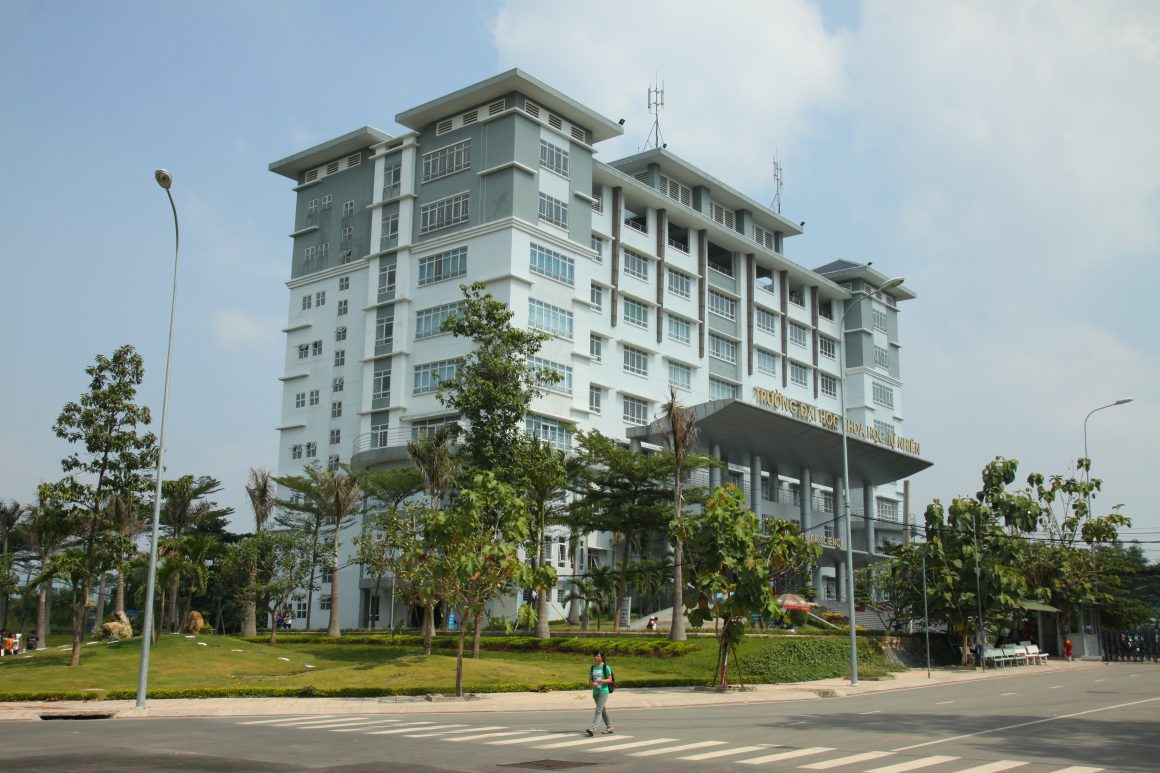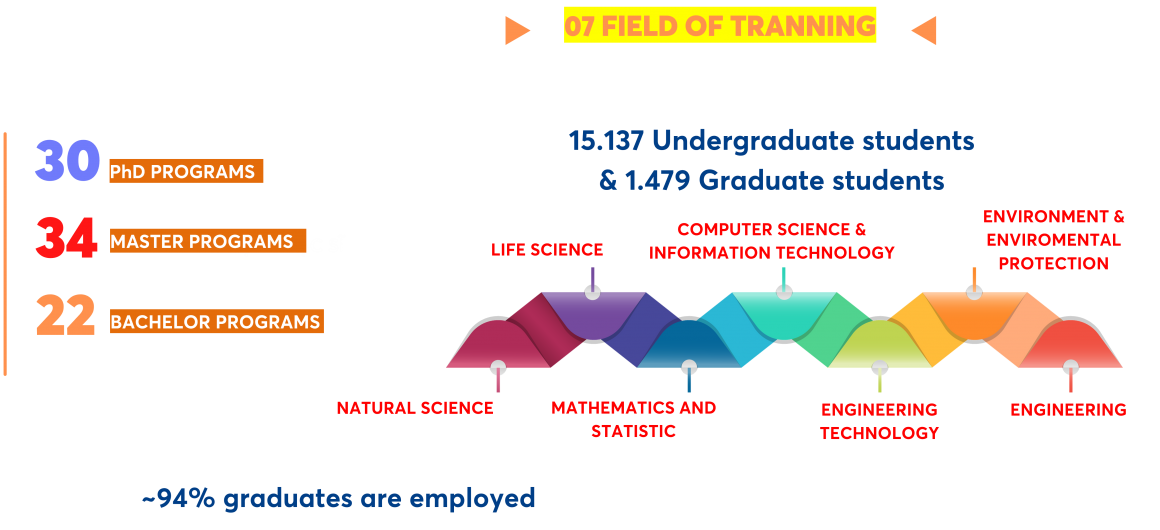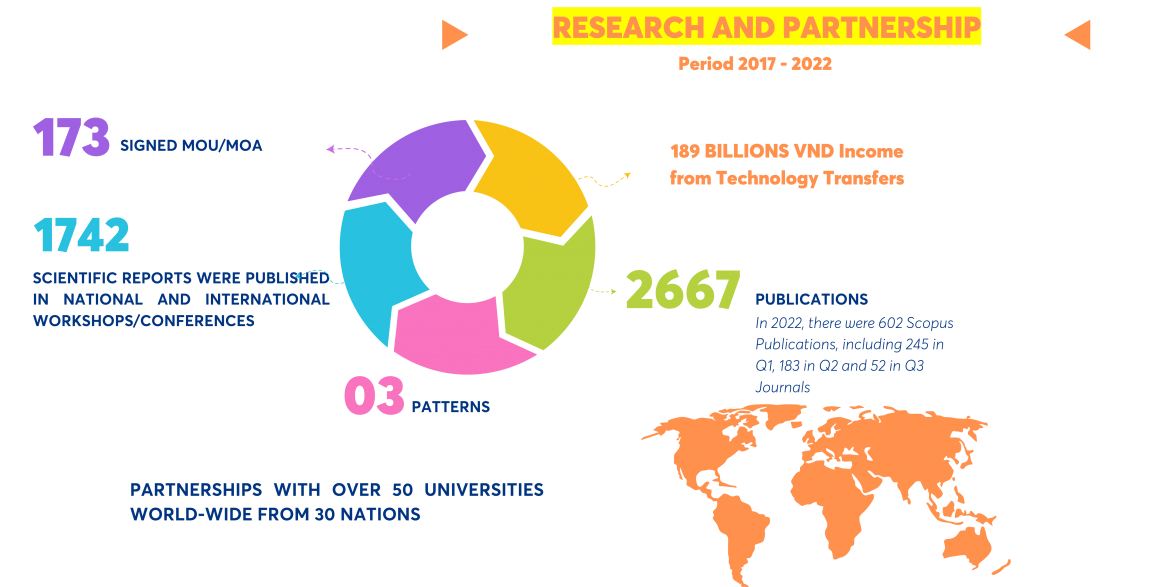The University of Science, Viet Nam National University Ho Chi Minh City (VNUHCM-US or HCMUS) has a history of over 80 years of establishment and development. Our mission is to become the leading university in Viet Nam and Southeast Asia for science education and research, as well as knowledge-based technology and the digital economy. The University’s predecessor was a division of Indochina College of Science founded in 1941. It was renamed the Faculty of Science, also known as the University of Sai Gon, in 1953.
In 1957, the University was named the Science University of Sai Gon. After that, the University was merged with the College of Letters to become the University of Ho Chi Minh City in 1977. On March 30th, 1996, the field of Natural Science was separated to establish the University of Sciences. Since then, the University of Science has joined as an affiliated member of the Viet Nam National University Ho Chi Minh City (VNUHCM) system.
The University currently has two campuses:
- 227 Nguyen Van Cu St., Ward 4, District 5, Ho Chi Minh City.
- Thu Đuc – Di An is located in the Urban Area of Viet Nam National University Ho Chi Minh City.


The VNUHCM-University of Science has a total area of more than 350,000 metres.
The University has 10 faculties:
- Faculty of Mathematics and Computer Science.
- Faculty of Information Technology.
- Faculty of Physics and Engineering Physics.
- Faculty of Chemistry.
- Faculty of Biology and Biotechnology.
- Faculty of Environment.
- Faculty of Geology.
- Faculty of Materials Science and Technology.
- Faculty of Electronics and Telecommunications.
- Faculty of Interdisciplinary Science.
The University also has 2 research institutes, 11 specialised research laboratories, 4 VNUHCM key laboratories, and 16 research and education centres in technologies, natural sciences, languages, and other fields.

The University provides tertiary education from undergraduate to postgraduate levels in basic science, interdisciplinary science, and spearheading science and technology.
With a scale of more than 15,000 undergraduate students and 1500 graduate students, the University currently has 22 undergraduate programmes, 34 master’s degree programmes, and 30 doctoral programmes in 7 fields: natural sciences, life sciences, mathematics and statistics, computer and information technology, environment, technology, and engineering.
Over the last few years, the University of Science has made continuous improvements in the staff’s quality of teaching, management, and services. A wide range of scientific disciplines are offered for both undergraduate and postgraduate levels and are particularly concentrated on the development of facilities as well as laboratory equipment. The academic curricula are regularly revised and updated to meet society’s needs and achieve accreditation standards, including the set of educational quality standards issued by the Ministry of Education and Training, AUN-QA accreditation, and ASIIN accreditation.
The University of Science is also a pioneer in the field of basic research as well as the development and application of spearheading science and technology, offering solutions for socio-economic issues and promoting community services through scientific practices in line with the development trends of the world.
Currently, the University has cooperative relationships with more than 60 scientific institutions and more than 50 prestigious universities and research institutes in 30 countries and territories, in which the University has joint training for many undergraduate and postgraduate programmes.

The University of Science, Viet Nam National University Ho Chi Minh City, was honoured to be awarded the Second-Class Independence Medal in 2008 and the title of Labour Hero in 2010 by the President of the Socialist Republic of Viet Nam. Many generations of alumni have achieved particular successes or important social positions, and persist in making dynamic contributions to the sciences and many distinct areas of social life.
Our core values are Science, Creativity, Integration, Empathy, Nurture, Community, and Empowerment.
The University of Science aims to become an autonomous university in curriculum development and scientific research, along with the application of science and technology to implement crucial changes in socio-economic development in the 4.0 technology era.

